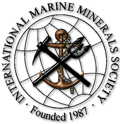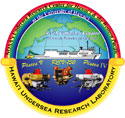Upcoming Conference: Sponsors
Japan Oil, Gas and Metals National Corporation
 Japan Oil, Gas and Metals National Corporation (JOGMEC) was established in 2004 to support Japanese private
companies with oil, natural gas, and metals exploration, production, and stockpiling activities, and to assist pollution control for metal mining in Japan.
With a team of natural resource and energy specialists, JOGMEC conducts activities to develop advanced technologies; supply technical expertise; and collect,
analyze, and disseminate information about the global energy industry and natural resources to companies in Japan.
Japan Oil, Gas and Metals National Corporation (JOGMEC) was established in 2004 to support Japanese private
companies with oil, natural gas, and metals exploration, production, and stockpiling activities, and to assist pollution control for metal mining in Japan.
With a team of natural resource and energy specialists, JOGMEC conducts activities to develop advanced technologies; supply technical expertise; and collect,
analyze, and disseminate information about the global energy industry and natural resources to companies in Japan.
International Seabed Authority
 International Seabed Authority (ISA) is an autonomous international organization established under the 1982 United Nations
Convention on the Law of the Sea and the 1994 Agreement relating to the Implementation of Part XI of the United Nations Convention on the Law of the Sea
(UNCLOS). ISA is responsible for the administration of seabed mineral resources that lie beyond the limits of national jurisdiction. ISA has its
headquarters in Kingston, Jamaica. It came into existence on 16 November 1994, upon the formal entry into force of UNCLOS. The first Secretary-General
of the Authority, Satya Nandan (Fiji) was elected in March 1996, and the Authority became fully operational as an autonomous international organization in
June 1996.
International Seabed Authority (ISA) is an autonomous international organization established under the 1982 United Nations
Convention on the Law of the Sea and the 1994 Agreement relating to the Implementation of Part XI of the United Nations Convention on the Law of the Sea
(UNCLOS). ISA is responsible for the administration of seabed mineral resources that lie beyond the limits of national jurisdiction. ISA has its
headquarters in Kingston, Jamaica. It came into existence on 16 November 1994, upon the formal entry into force of UNCLOS. The first Secretary-General
of the Authority, Satya Nandan (Fiji) was elected in March 1996, and the Authority became fully operational as an autonomous international organization in
June 1996.
Kochi University
![]() The city of Kochi is flanked by mountains and the Pacific Ocean where present-day dynamic geological and biological activities are taking place. Kochi
University is a unique national university holding about 4000 undergraduate and graduate students with multidisciplinary faculties in Science, Humanities,
Education, Agriculture, and Medicine. In addition, the Center for Advanced Marine Core Research is a specialty of Kochi University, which focuses on
geological studies of marine sediment cores in conjunction with the International Ocean Drilling Programme (IODP).
The city of Kochi is flanked by mountains and the Pacific Ocean where present-day dynamic geological and biological activities are taking place. Kochi
University is a unique national university holding about 4000 undergraduate and graduate students with multidisciplinary faculties in Science, Humanities,
Education, Agriculture, and Medicine. In addition, the Center for Advanced Marine Core Research is a specialty of Kochi University, which focuses on
geological studies of marine sediment cores in conjunction with the International Ocean Drilling Programme (IODP).
Department of Geosystem Engineering, School of Engineering
The University of Tokyo
![]() The Department of Geosystem Engineering of the Graduate School of Engineering, The University of Tokyo, offers extensive graduate lectures and studies for harmonizing the natural environments and human activities, through Geo-Science, Geo-Engineering, Natural Resources Engineering, and Resources Economics/Policy.
The Department of Geosystem Engineering of the Graduate School of Engineering, The University of Tokyo, offers extensive graduate lectures and studies for harmonizing the natural environments and human activities, through Geo-Science, Geo-Engineering, Natural Resources Engineering, and Resources Economics/Policy.
Geological Survey of Japan
 The missions of the Geological Survey of Japan, AIST are to provide reliable and impartial geoinformation
to the public in close coordination with geoscience research divisions, public relations, and a museum. GSJ is now a part of the National Institute for
Advanced Industrial Science and Technology (AIST).
The missions of the Geological Survey of Japan, AIST are to provide reliable and impartial geoinformation
to the public in close coordination with geoscience research divisions, public relations, and a museum. GSJ is now a part of the National Institute for
Advanced Industrial Science and Technology (AIST).
NeptuneMinerals
 NeptuneMinerals Plc is a leading explorer and developer of Seafloor Massive Sulphides (SMS). Listed on the AIM
market in London, (NPM.L) Neptune holds three exploration licenses, which gives the Company exclusive exploration rights over 35,000 km of
New Zealand-controlled waters, helping Neptune secure a pre-eminent position in mineral rights over known SMS deposits in the region. Following its listing
in October 2005, the Company completed the operational phase of its exploration program in December 2005. The program focused on coring and seafloor
mapping within the New Zealand 200-nautical mile Exclusive Economic Zone.
NeptuneMinerals Plc is a leading explorer and developer of Seafloor Massive Sulphides (SMS). Listed on the AIM
market in London, (NPM.L) Neptune holds three exploration licenses, which gives the Company exclusive exploration rights over 35,000 km of
New Zealand-controlled waters, helping Neptune secure a pre-eminent position in mineral rights over known SMS deposits in the region. Following its listing
in October 2005, the Company completed the operational phase of its exploration program in December 2005. The program focused on coring and seafloor
mapping within the New Zealand 200-nautical mile Exclusive Economic Zone.
International Marine Minerals Society
 The International Marine Minerals Society (IMMS) is a professional society whose members share a common interest in
various aspects of marine minerals. Founded in 1987, the IMMS now includes a worldwide membership of individuals from industry, government agencies, and
academic institutions. The primary objectives of the IMMS are to: (1) promote and improve the understanding of marine mineral deposits within the province of
the global ocean; (2) aid in the interchange of information among members through networking and formal symposia; (3) encourage the prudent development of
marine mineral resources, including concern for the environment; and (4) encourage research in all aspects of marine minerals development.
The International Marine Minerals Society (IMMS) is a professional society whose members share a common interest in
various aspects of marine minerals. Founded in 1987, the IMMS now includes a worldwide membership of individuals from industry, government agencies, and
academic institutions. The primary objectives of the IMMS are to: (1) promote and improve the understanding of marine mineral deposits within the province of
the global ocean; (2) aid in the interchange of information among members through networking and formal symposia; (3) encourage the prudent development of
marine mineral resources, including concern for the environment; and (4) encourage research in all aspects of marine minerals development.
IMMS is a co-sponsor of the Underwater Mining Institute (UMI) and holds its annual meetings in conjunction with the UMI. Members of the IMMS receive timely e-news, which includes summaries of the latest developments in the field of marine minerals. On occasion the IMMS presents The Moore Medal award to an individual who has contributed notably to the goals and initiatives of the Society in the areas of research, development and management. The Moore Medal is named in honor of the late Professor J. Robert “Robby” Moore. Professor Moore spent a long and distinguished career dedicated to the goals that are now followed by IMMS. He founded the UMI in 1970, and with the collaboration of several colleagues, initiated IMMS in 1987.
The Marine Technology Society
 The Marine Technology Society (MTS) is the world’s largest international professional society
solely dedicated to the study and pursuit of marine technology. It is
composed of scientists, engineers, and policy makers from industry,
government and academia dedicated to the pursuit of technical excellence and
appropriate application in the widest range of marine technologies. Through
its sponsorship of the Underwater Mining Institute, MTS hopes to encourage
the development of a successful and environmentally responsible marine
mining industry.
The Marine Technology Society (MTS) is the world’s largest international professional society
solely dedicated to the study and pursuit of marine technology. It is
composed of scientists, engineers, and policy makers from industry,
government and academia dedicated to the pursuit of technical excellence and
appropriate application in the widest range of marine technologies. Through
its sponsorship of the Underwater Mining Institute, MTS hopes to encourage
the development of a successful and environmentally responsible marine
mining industry.
Hawai‘i Undersea Research Laboratory
 The Hawai‘i Undersea Research Laboratory (HURL) at the University of Hawai'i was established to study
deepwater marine processes in the Pacific Ocean. Charged with manned submersibles and an ROV, HURL research projects cover the geology and biology of
emerging and subsiding islands, marine product and fishery assessments, processes of submarine mineral accumulations on seamounts, volcanoes, and islands,
and deep-sea marine ecosystems influenced by natural and man-induced processes.
The Hawai‘i Undersea Research Laboratory (HURL) at the University of Hawai'i was established to study
deepwater marine processes in the Pacific Ocean. Charged with manned submersibles and an ROV, HURL research projects cover the geology and biology of
emerging and subsiding islands, marine product and fishery assessments, processes of submarine mineral accumulations on seamounts, volcanoes, and islands,
and deep-sea marine ecosystems influenced by natural and man-induced processes.
[ Top of this page ]



